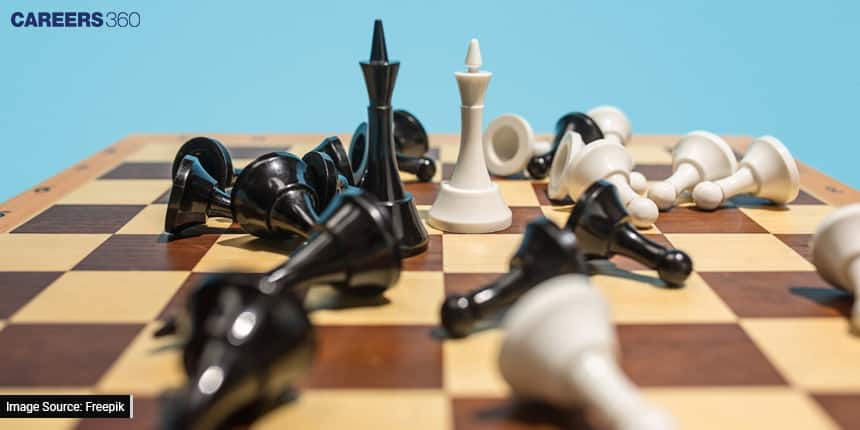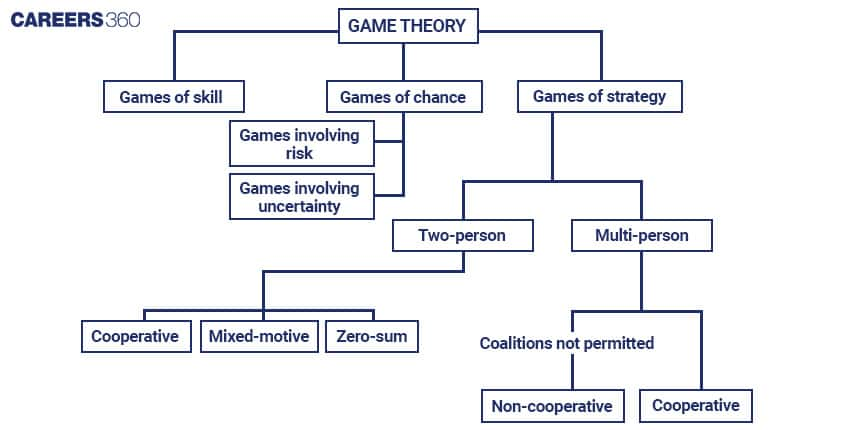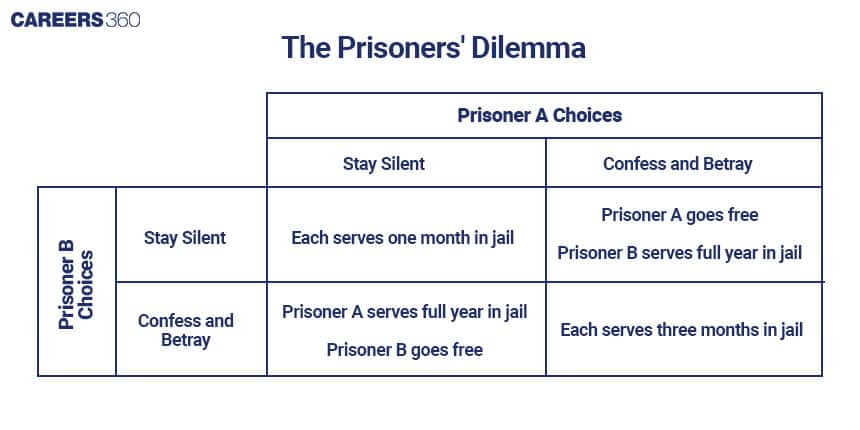Game Theory In Economics: Strategic Decision-Making
Game theory, a field of study that has its roots in mathematics, has found extensive applications in economics, providing valuable insights into strategic decision-making processes. Game theory offers a framework for analysing and understanding how individuals, firms, and governments make choices and interact in strategic situations. It explores the dynamics of decision-making in situations where the outcome of one's actions depends not only on their own choices but also on the choices of others.

Understanding Game Theory
To grasp the significance of game theory in economics, we must first comprehend its core concepts and principles.
Key Terminology in Game Theory
>> Game: A set of circumstances that involves multiple decision-makers, known as players, whose choices impact the outcomes.
>> Players: Strategic decision-makers within the context of the game.
>> Strategy: A complete plan of action a player takes based on the possible circumstances that may arise within the game.
>> Payoff: The benefit or outcome that a player receives from a specific choice or combination of choices. This could be money, utility, market share, or any other quantifiable measure.
>> Information Set: The knowledge available to players at a given point in the game, particularly in sequential games.
>> Equilibrium: A point in the game where players have made their decisions, and an outcome is reached. The Nash equilibrium is a well-known concept in game theory, which we'll discuss in detail later.
Also check - Explore the Science Behind Rain Formation
Foundation of Game Theory
Game theory's key pioneers were mathematician John von Neumann and economist Oskar Morgenstern in the 1940s.
The central idea in game theory is that the outcome of a player's actions depends on not just their own choices but also the choices of other players. It models the players, their preferences, available strategies, and how those strategies affect the outcome. Game theory assumes that players are rational and seek to maximise their payoffs or utility.
Type of Game Theory

Cooperative vs Non-Cooperative Games
>> Cooperative Game Theory: This type of game theory focuses on how groups or coalitions of players interact and make decisions when the payoffs are known. In cooperative games, players work together to achieve a common goal and decide how to distribute the rewards among themselves. The challenge here is not just individual decision-making but also forming effective coalitions.
>> Non-Cooperative Game Theory: In non-cooperative game theory, the emphasis is on how rational actors or players interact to achieve their individual goals. It assumes that players act independently and make choices that are in their best interest. One of the most straightforward examples of non-cooperative games is the strategic game, such as rock-paper-scissors, where players choose strategies without directly cooperating with others.
Zero-Sum vs Non-Zero-Sum Games
>> Zero-Sum Games: In a zero-sum game, the total gain or loss is always zero. This means that for every player who wins, there is an equal loss by another player. In zero-sum games, the interests of the players are in direct conflict. Many competitive situations, like sports matches or casino games, are zero-sum.
>> Non-Zero Sum Games: Non-zero-sum games are those in which all players can win or lose simultaneously. This type of game allows for cooperation and mutual benefit. Business partnerships and negotiations are often non-zero-sum, as both parties can work together to achieve positive outcomes.
One Shot vs Repeated Games
>> One Shot Games: In a one-shot game, the interaction between players occurs only once, and there are no future interactions. Each decision is final, and there is no opportunity to learn from previous rounds. This is common when decisions cannot be changed or retried, like a single business transaction.
>> Repeated Games: Repeated games involve multiple rounds of interaction between the same players. This allows for learning, adaptation, and the possibility of building reputation and trust. Players can strategize over time, and their decisions in one round can influence future rounds. This is often seen in long-term business relationships, competitive markets, and strategic planning.
Game theory in economics is a fundamental concept that can be effectively visualised using a payoff matrix, and one of the most well-known examples is the Prisoner's Dilemma.
Imagine two criminal suspects, referred to as A and B, who are being separately interrogated by the police. Each suspect is presented with a critical decision: whether to confess to the alleged crime or remain silent. The consequences of their actions are clearly explained to them.

The catch in the Prisoner's Dilemma is that both A and B want to minimise their time in prison. They also fear that the other person might betray them, resulting in both serving a lengthy 12-month prison sentence. Due to this fear, both suspects end up choosing to confess. As a result, they both serve 3 months in prison.
However, the intriguing part is that if they had trusted each other and chosen not to confess, both would have only served 1 month in prison. This simple yet powerful example highlights the tension between individual self-interest and collective well-being, demonstrating the importance of trust and cooperation in various decision-making scenarios within economics and other fields.
Applications of Game Theory in Economics
Let's explore some of its most significant applications in the field.
>> Price Competition Price competition between firms is a classic example of game theory in economics. In this scenario, firms must decide whether to charge high or low prices for their products. The outcome depends on the pricing strategy of each firm and its impact on market share and profitability. This can be represented as a matrix where each firm's strategies and payoffs are outlined. Game theory helps firms analyse and predict their competitors' pricing decisions, ultimately influencing their pricing strategies.
>> Auctions: Auctions are prevalent in economic transactions, and game theory offers insights into bidder behaviour and auction design. Different types of auctions, such as English auctions, Dutch auctions, and sealed-bid auctions, are analysed using game theory to understand bidder strategies and optimal pricing. Game theory helps design auctions that achieve specific objectives, such as maximising revenue for the seller or ensuring a fair allocation of goods.
>> Negotiation: Negotiation is an essential component of business and economic interactions. Game theory is used to analyse negotiations and strategize effectively. It provides a structured approach to understanding how parties can reach mutually beneficial agreements while considering the actions and responses of the other party. Economists and businesses can optimise their bargaining strategies by modeling negotiations as games.
Also check - Which Is a Smaller Particle - A Quark or An Electron?
Real-World of Game Theory in Economics
Real-world companies and organisations use game theory to inform their strategic decisions and better understand their competitive environments. Here are a few examples.
>> Apple and Samsung: Two major players in the smartphone market, Apple and Samsung, use game theory to predict each other's actions and make strategic decisions. They analyse factors such as pricing, product launches, and marketing strategies to stay competitive. Game theory helps them navigate this dynamic industry by anticipating their competitor's moves and adapting accordingly.
>> Amazon and eBay: Amazon and eBay are prominent online retailers that use game theory to optimise pricing and marketing strategies. They analyse each other's actions in the e-commerce market, such as price changes and new product listings, to determine their optimal strategies. Game theory aids in decision-making and staying competitive in the online retail space.
>> Uber and Lyft: Ride-hailing companies like Uber and Lyft engage in fierce competition. Game theory is employed to analyse the market dynamics and predict each other's actions, such as pricing changes and service enhancements. By understanding the strategic interactions in this market, these companies can make informed decisions to attract riders and drivers.
